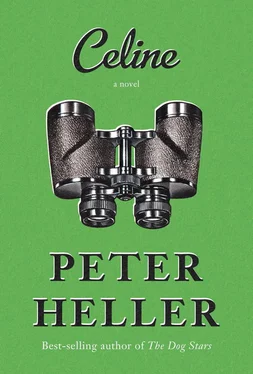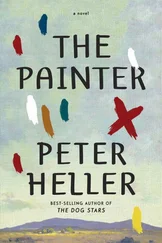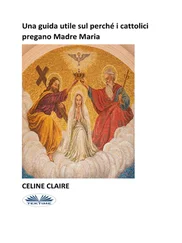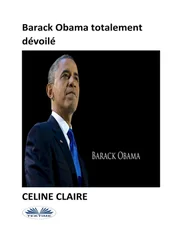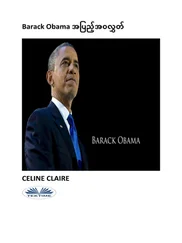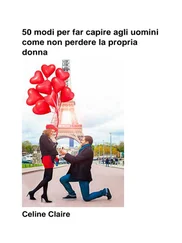On the next was a spread of the presidential palace and the National Gallery, which she skimmed, but at the bottom was a photograph that stopped her again. It was of a painting: It seemed to be a scrim of rain over mountains. Storm in late spring, maybe, greens and a black sky riven by a jag of light. If it were a sky. She wasn’t sure, but she felt a rhythm in this too, a music, and a kinship with the elements, and realized the same sensibility that had loved the cowboy now loved the abstract. The painting reminded her of Clyfford Still, the same surprise and mystery. Fernanda de Santos Muños was the name of the artist, and according to the caption she was one of Chile’s national treasures. Celine could see why.
“Pete,” Celine said.
“Yes, love.”
“Look at this painting. It must have been strange shooting in Chile in the seventies. Chile, Argentina, Peru. Those were dark times. I had a cousin who was an economic attaché at our embassy in Buenos Aires and he used to talk about it. He was not a reactionary at all and he said it was awful.”
“Mmm,” Pete said.
“Not our best moment, was it?”
“No.”
“Terrible terrible dictatorships and we abetted them. So many murdered, tortured, gone missing. Ward said several of his Argentinean friends were disappeared. Poof.” She took off her reading glasses and polished them on the hem of her shirt and glanced at her husband who was particularly thoughtful and serious. Pete opened his mouth to speak, closed it. Sometimes when he was very upset or angry he did that—shut his mouth hard. As if the fury of what he was about to loose into the world would do more damage. He went back to reading. He, too, had been looking at Lamont’s photographs, but he soon got caught up in another article called “Bear Attacks!” It was in one of the magazines from the period that did not have a story shot by Gabriela’s father. He read that more than one person had been mauled because they had left food in their RV, which a hungry grizzly had opened like a sardine can. “Note to self,” he murmured. “Do not leave empty tuna tins in the camper.”
Celine looked over her reading glasses. “What was that, Pete?”
“Nothing,” he said. He didn’t want to give her any ideas. “Listen to this. I paraphrase: In the summer of ’74 a tourist from North Carolina was at Denali with her two small children. They saw a grizzly with two cubs at the edge of a meadow and pulled over and, of course, approached. Face off. The bear—of course—was not amused and made several false charges, building up to the main event. Thinking fast, the woman pulled out her brand-new can of pepper bear spray and sprayed it all over her kids. She thought it worked like Off! They had to go the emergency room.”
“What did the bear do?”
“She fled. Who would eat somebody that dumb?”
They drank their tea. Celine said, “I notice that we have a pretty comprehensive catalogue of the years he was a shooter. Maybe we should make a list and see what months we’re missing.”
“Good idea,” Pete said. He wasn’t sure if it was or if it wasn’t, but it couldn’t hurt to see every one of Lamont’s stories, and he was long past questioning her hunches. They pulled out his notebook and jotted down the months and years of the ones they had, and added the dates of the magazines they’d already checked at the library and left behind because they had no Lamont photographs. They found they were missing only five. “I’d like to find those,” Celine said.
They finished their tea and climbed into the loft, and were lulled this time not by rain but by the gentle sipping of the lake water against the shore and the shirr of wind in the tall pines. They kept the door wide, latching only the screen, and left all the mesh windows around the upper bed open to the breeze. Celine got up to pee once and for a long time stood in her wrapper in the chilly dark—there would be frost in the morning, she thought—and marveled at the depth and texture of the stars. Like some infinite woven fabric. Which it was. The Milky Way ran through it like the unfurling and whimsical thought of the weaver. It was very still. She took a short walk, a sort of errand, and finally, her toes numb, she went back to bed. No truck woke them in the middle of the night because, of course, the truck was parked forty yards away. Celine kept the Glock 26 under the edge of her pillow.
Pete was up before her and she woke to the smell of strong coffee and the first light through the screen making a luminous bowl of sky where three then two stars gleamed. It was cold, the cold edge of fall and she adored it. She breathed—her lungs felt clear today, despite the altitude. She was almost content. I am lucky, she thought. Very. I could die right now, under this warm flannel with the smell of French roast and a couple of ducks muttering on the lake and my husband puttering below. Die fulfilled.
Maybe. There was a case to solve and something nagged her about her working theory on Paul Lamont. Which consisted of two alternative possibilities: 1) Lamont was eaten by a bear; or 2) he wanted out—of his marriage, of the fathering at which he was a failure, and maybe even from our own Great Game of undercover intelligence in the Americas—wanted out of all of it so badly that he had staged his own death and gone underground.
But lying there, listening to the waking day, another possibility occurred to her: Lamont may not have abandoned Gabriela, after all. He may have been taken. She sat up.
Pete was happy to see her up so early. She held the handle at the edge of the bed and her right foot found the storage cabinet and he gave her a hand down. He hummed and he poured her a cup of black coffee and opened the small electric fridge under the sink and pulled out a pint of milk and poured a generous slug into the cup.
“Thank you, Pete,” she said. “Why do you think everybody who camps has to have blue enamel cups?”
“Tradition.”
“Hmm.” She sat in the chair at the side dinette. The smallness of it, and the little table, reminded her of a school desk, one of the ones the kids got in first and second grade. “I’ve been thinking,” she said. She leaned forward and looked out the open window. The pleasant-looking young man was already up. He was stripping the tent fly from its poles. He wore his baseball cap and a green Carhartt canvas coat. “That man is bothering me. He’s starting to feel like a horsefly.” She left the cup on the table and stood. “Pete, where did you stash the shoulder holster?”

Celine slipped on the shoulder rig with practiced ease, and snugged the Glock into the holster and shrugged on her plaid wrapper. Bell tartan, the pattern of her family, the Scottish branch. She wore sheepskin slippers. She smoothed down and patted her silver hair into some semblance of shape and took up her enamel mug. No, this wouldn’t do. She put the cup back down and reached for her purse, which dangled from a hook. She took out a compact and lipstick and carefully applied the makeup, compressing her lips and glancing at both sides of her face in the tiny mirror. She found a stick and applied eyeliner. She took… as long as it took. That was the wonderful thing about applying her face in the morning: time vanished; it was a kind of meditation. Pete watched her without comment. What could he say? You look great in Glock, dear?
“Back in a minute,” she said finally.
She strolled down the dirt track in her robe, carrying her coffee easily, at home in the world, and with the luxuriant pace of someone who isn’t quite awake and is strolling over to the house of a familiar neighbor. On the way she stopped to pick up a brilliant blue feather. She had never seen anything like it—it was small and delicate and shimmered from gray to blue to green. Perfect. She’d use it to adorn the top of a turtle-shell mask she was making at home. She tucked it into the pocket of her robe.
Читать дальше
